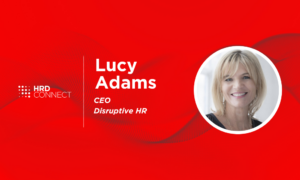Diversity and the power of the network
- 4 Min Read
There’s no doubt in my mind that creating an inclusive business has a raft of benefits. Not only are retention levels likely to increase if a firm has diversity at the core of its values, but organisations will also see greater hiring success rates. And when we consider that making the wrong hire can have a hugely negative impact on a company – both financially and culturally – aiming for inclusivity is a no-brainer.
- Author: Juliet Eccleston
- Date published: Apr 25, 2018
- Categories

While achieving true diversity is on the wish list of every employer and HR professional, there’s still a long way to go before this is actually realised. As a case in point, the gender gap remains a key business concern. According to the BBC, the recent gender pay gap reporting has identified that more than three-quarters of businesses in the UK pay men more than women.
Further research from the Institute for Fiscal Studies (IFS) revealed that mothers who return to work end up earning a third less than men and a recent study by Women Returners found that over a third (36%) actually expect to be demoted when they return to work. And that’s just one segment of the workforce.
According to an analysis from the Guardian and Operation Black Vote, of the 1,049 most powerful people in Britain, just 36 are from ethnic minorities. A report from the Papworth Trust also highlighted that the employment rate among working-age disabled people in the UK is just 46.5%. This research further revealed that only 7% of those individuals with a learning disability are currently in paid employment. Clearly more needs to be done to improve minority representation in the workplace, but the key question is obviously, how?
Re-thinking recruitment

The fact of the matter is, diversity is best managed at the recruitment stage. However, there’s a history of unconscious bias that plagues the hiring industry. And with interviewers still falling for that age-old trap of hiring in their own image, it’s no wonder that we’re yet to create a workforce which is truly reflective of society itself.
This issue is further exacerbated by the challenge of a less-than-diverse applicant list. Research has shown that if a candidate pool consists of a majority of one particular gender or race, then the individual hired will be from that majority. As such, if the initial pool isn’t diverse itself, then true diversity simply will not be achieved. There is also the subject of positive discrimination which is negatively impacting equality as placements are being made simply to meet targets, without any consideration as to why those from under-represented groups aren’t applying in the first place. This naturally leads to an increase in employee turnover.
What’s clear in my mind is that we need to shake up the hiring process as we know it and take a more modern look at how we source talent: this is where the power of networks can really shine.
Why networks are the solution
Professionals are so widely connected online these days that it’s now often much easier to contact your entire working network digitally than arrange a face-to-face meeting with your peers. And in a world where we share updates, information and images with our social networks daily, the best place to source the perfect candidate is, without a doubt, through professional recommendations.
By using the power of networking to incentivise people to recommend their own contacts for roles they feel they are suitable for, HR teams can reach a wider audience that is more representative of the modern world. In our careers we come across individuals from a raft of backgrounds, and while we might have worked with Jo Bloggs a while ago, we might recognise skills and experience that would make them perfect for a particular vacancy that’s just come to light. This could be a role they might not initially feel they’re suitable for, but with the recommendation from a peer, they are more likely to take that chance.
Putting the power of recruitment into the hands of the ‘talent’ themselves, opens up greater access to a huge talent pool, one that reflects the true image of modern society. And by removing an intermediary, HR Professional will not only be minimising unconscious bias, but also significantly reducing their recruitment costs – a move I imagine many would welcome when we consider that expensive recruiters are often fishing from the same pond.
What we need to see now is more hirers and HR teams taking that leap and looking to professional networks for recommendations rather than hoping that the worn-out job advert or expensive recruiter will deliver the right results.
About the author
Juliet Eccleston is Co-Founder of leading professional recommendation platform, AnyGood?








